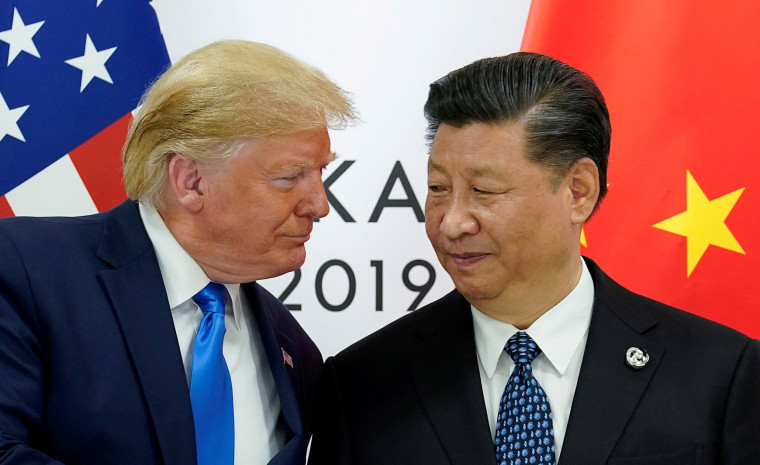About a week ago, NBC News reported that the director of the Centers for Disease Control and Prevention, Robert Redfield, agreed when questioned at a congressional hearing that it's "absolutely wrong and inappropriate" to use labels such as "Wuhan virus" or "Chinese coronavirus" when discussing the viral outbreak.
For many conservatives, the guidance was easily ignored. Many on the far-right, including on Capitol Hill, have made aggressive rhetorical efforts in recent weeks to change the nomenclature, apparently in the hopes of shifting public blame toward Beijing.
Evidently, they've persuaded Donald Trump.
President Donald Trump drew backlash Monday night after posting a tweet using the phrase "Chinese Virus." ... Chinese officials condemned Trump's comments, saying his tweet smeared China. "The U.S. should first take care of its own matters," said Geng Shuang, a spokesman for China's Foreign Ministry.
Eight weeks after the United States uncovered its first confirmed coronavirus case, Trump hadn't used the phrase "Chinese Virus" at all -- in social media or in public. Late yesterday, however, the American president published a tweet with the phrase, and the Republican used it again this morning.
The xenophobic rebranding isn't exactly subtle. What's more, it comes a week after Trump's widely panned Oval Office address in which he went out of his way to label COVID-19 a "foreign virus." In literally his first sentence, Trump emphasized that the outbreak "started in China."
It's a deeply unproductive shift in posture. Politico recently reported that the "escalating drumbeat against China is worrying some public health experts, who say the attempts to blame Beijing for the coronavirus outbreak could harm efforts to combat the spreading contagion, while winning praise from others. And it's come amid conspiracy theories and counteraccusations from Chinese officials, some of whom are alleging the virus's true origins lie outside China, in what U.S. officials say is a malicious effort to shift blame."
What's more, it's also a dramatic reversal of sort. As recently as late January and early February, Trump seemed more than happy to defend China and vouch for its efforts to combat the virus.
As the pressure grew, the American president, burdened by a difficult record on matters of race, apparently changed his mind.

